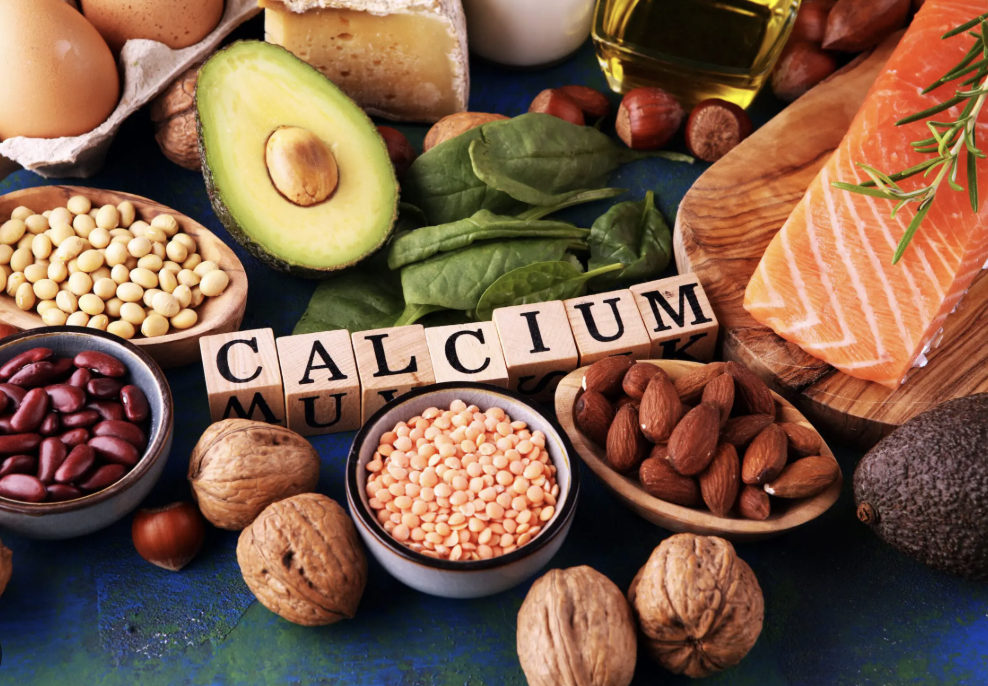As a student, whether you’re in high school, college, or graduate school, your brain is working overtime. From processing new information to retaining key concepts for exams, your body needs the right fuel to stay sharp and focused. While most students are familiar with the importance of vitamins, minerals are just as crucial for cognitive function, energy levels, and overall health.
However, with busy schedules and sometimes erratic eating habits, many students overlook the essential minerals that can significantly impact their academic performance. So, what minerals do you need to ensure your brain is functioning at its best?
In this blog, we’ll explore the essential minerals every student should include in their diet for improved focus, memory, and well-being. Whether you're preparing for finals or just want to feel more energized during your studies, understanding the power of minerals can make all the difference.
Magnesium: The Ultimate Stress Reliever
Why It’s Important: Magnesium is a powerhouse mineral that plays a critical role in brain function, mood regulation, and energy production. As a student, you’re probably familiar with stress, anxiety, and the mental fatigue that often accompanies long hours of studying. Magnesium helps relax the nervous system, combat stress, and improve sleep quality. It also plays a vital role in memory function and overall cognitive performance.
Sources of Magnesium:
- Spinach
- Almonds
- Avocados
- Dark chocolate (yes, really!)
- Legumes
How It Helps Students: Magnesium helps prevent burnout by reducing cortisol (the stress hormone) levels and promoting relaxation. It's especially helpful when you're dealing with exam stress, late-night study sessions, or tight deadlines. Plus, its ability to improve sleep quality means you’ll wake up more refreshed, with a clearer, more focused mind.
Iron: For Energy and Focus
Why It’s Important: Iron is essential for the production of hemoglobin, a protein in red blood cells that carries oxygen to your brain and other organs. Without enough iron, your body can’t supply your brain with the oxygen it needs to function at its best, leading to fatigue, difficulty concentrating, and even short-term memory problems. Low iron levels are often a culprit behind that “brain fog” that makes studying feel like a slog.
Sources of Iron:
- Lean meats (beef, chicken)
- Spinach
- Lentils
- Tofu
- Pumpkin seeds
How It Helps Students: Iron boosts energy and helps combat mental fatigue. If you find yourself easily tired or having trouble staying focused during long study sessions, low iron could be a factor. Iron-rich foods can also improve your mood, which is crucial for maintaining motivation and staying engaged with your work.
Zinc: The Memory-Boosting Mineral
Why It’s Important: Zinc is often touted for its immune-boosting benefits, but it also plays an essential role in brain function. This mineral is involved in neurotransmitter activity, which influences memory, attention, and learning capacity. Research shows that adequate zinc levels are linked to improved cognitive function, making it a key mineral for academic performance.
Sources of Zinc:
- Oysters (one of the best sources)
- Beef and lamb
- Pumpkin seeds
- Chickpeas
- Cashews
How It Helps Students: Zinc is crucial for memory retention and processing information. If you’re struggling with retaining information, especially in subjects that require heavy memorization, zinc might be the missing piece. It also helps with focus, making it easier to concentrate on long reading assignments or lectures.
Calcium: For Strong Bones and Sharp Focus
Why It’s Important: While calcium is widely known for its role in maintaining strong bones and teeth, it also plays an important role in brain function. Calcium helps transmit nerve impulses, which are essential for thinking, memory, and learning. Adequate calcium levels have been shown to reduce the effects of mental fatigue and improve concentration.
Sources of Calcium:
- Dairy products (milk, yogurt, cheese)
- Leafy greens (kale, bok choy)
- Fortified plant-based milk (almond milk, soy milk)
- Tofu
- Broccoli
How It Helps Students: Calcium supports optimal brain function by facilitating communication between brain cells, which helps with focus and cognition. Additionally, calcium can help stabilize your mood, which is important when managing the stress that often comes with academic life.
Potassium: For Brain Energy and Clarity
Why It’s Important: Potassium is crucial for proper cell function, especially in the brain and muscles. It helps regulate fluid balance and nerve function, which is essential for cognitive processing. When potassium levels are low, you may feel mentally sluggish or have trouble concentrating.
Sources of Potassium:
- Sweet potatoes
- Bananas (a classic!)
- Spinach
- Avocados
- Beans (kidney beans, black beans)
How It Helps Students: Potassium helps maintain your brain’s electrical function, which is needed for processing information and quick thinking. Since it also regulates fluid balance, staying hydrated and maintaining potassium levels can help prevent feelings of mental fatigue and improve focus during long study sessions.
Phosphorus: A Key Player in Brain Health
Why It’s Important: Phosphorus is essential for energy production, cell repair, and maintaining healthy brain function. It works in tandem with calcium to regulate the activity of your brain’s nerve cells, and it’s particularly important for memory and cognitive function.
Sources of Phosphorus:
- Meat (especially chicken and turkey)
- Fish (salmon, tuna)
- Dairy products (milk, cheese)
- Nuts and seeds
- Whole grains
How It Helps Students: Phosphorus helps the brain store and process information, making it critical for memory retention. It also contributes to the repair of cells damaged by stress or mental fatigue, which helps you stay sharp throughout your study sessions.
Iodine: Supporting Focus and Mental Clarity
Why It’s Important: Iodine is essential for proper thyroid function, and the thyroid plays a critical role in regulating metabolism and energy levels. An iodine deficiency can lead to cognitive impairments, fatigue, and even issues with memory and concentration. Ensuring you have enough iodine supports overall brain health and mental clarity.
Sources of Iodine:
- Seaweed (nori, kelp)
- Fish (cod, shrimp)
- Dairy products
- Iodized salt
How It Helps Students: Iodine supports the brain by promoting optimal thyroid function. This can help maintain energy levels, reduce feelings of fatigue, and enhance mental clarity, which is essential when you're juggling assignments, exams, and lectures.
Conclusion: A Balanced Diet = A Sharp Mind
As a student, the demands on your cognitive function can be intense, but the good news is that you can optimize your brain health by ensuring you’re getting the right minerals. Magnesium, iron, zinc, calcium, potassium, phosphorus, and iodine are just a few of the essential minerals that help maintain mental clarity, focus, and overall well-being.
Eating a balanced, nutrient-rich diet will give you the physical and mental energy you need to tackle your academic goals. So, the next time you’re preparing for a study session or gearing up for an exam, remember that your brain needs more than just caffeine and textbooks—it needs the right fuel to perform at its best.
By incorporating these minerals into your diet, you’ll boost your ability to focus, retain information, and stay energized—giving you the edge you need to succeed in school and beyond.








Comments
Post a Comment